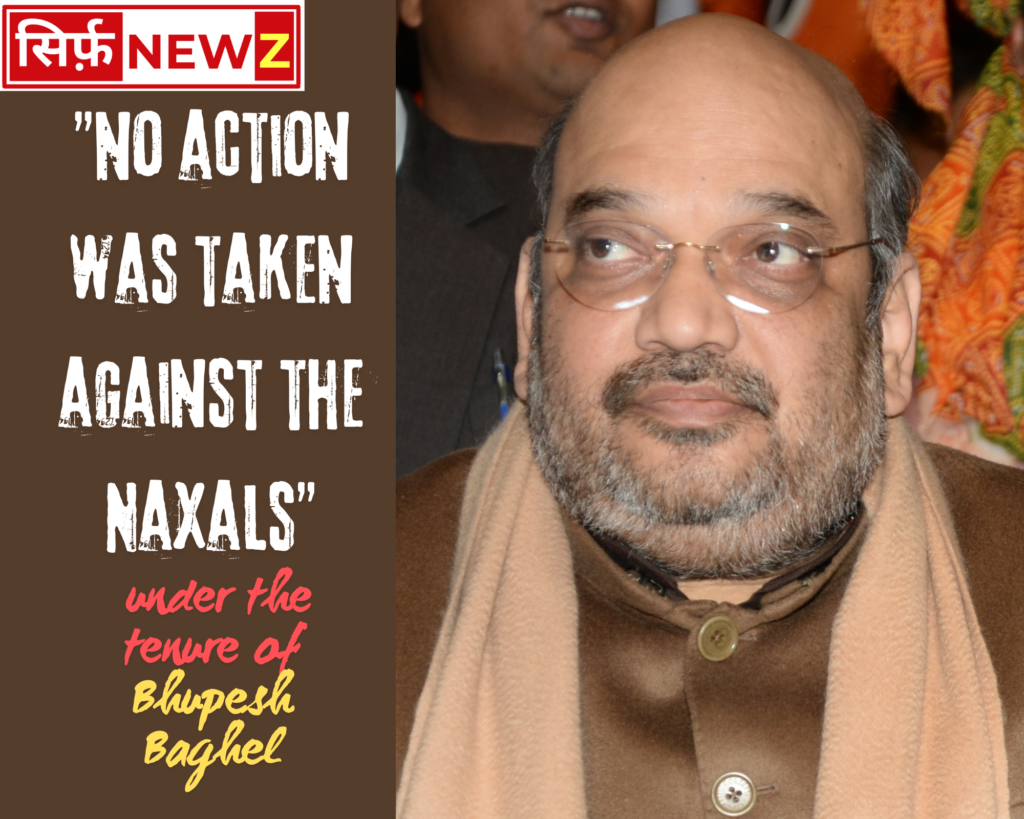In a recent election rally in Chhattisgarh, Union Home Minister Amit Shah criticized the previous administration led by former Chief Minister Bhupesh Baghel for its alleged inaction against Naxalism in the state.

Shah asserted that during Baghel’s tenure, no significant steps were taken to address the Naxal issue, contrasting it with the recent actions taken by the current Chief Minister Vishnu Deo Sai. He highlighted that within four months, under Sai’s leadership, over 90 Naxals have been killed, 123 arrested, and 250 surrendered, signaling a more proactive stance against Naxal activities.
The Home Minister emphasized Prime Minister Narendra Modi’s efforts in combating terrorism nationwide, suggesting that Naxalism in Chhattisgarh is nearing its end under the BJP-led government.
Shah’s remarks come shortly after Prime Minister Modi’s criticism of the Congress party’s manifesto during an election rally in Rajasthan’s Banswara. Modi raised concerns about the Congress’s purported plans to redistribute wealth, particularly targeting their proposal to survey and redistribute gold assets, which he deemed unacceptable.
Modi accused the Congress of favoring minorities over other marginalized communities in resource allocation, referring to former Prime Minister Manmohan Singh’s statement regarding the first right on resources belonging to minorities.
Furthermore, Modi claimed that the Congress’s approach mirrored an “Urban Naxal” ideology, suggesting that their policies would infringe upon personal property rights, including items like the traditional Mangalsutra worn by married women.
The Prime Minister’s remarks have sparked debates regarding the Congress’s proposed wealth redistribution policies and their implications for individual property rights.
As the election fervor intensifies in both Chhattisgarh and Rajasthan, these contrasting narratives are shaping the political discourse, with parties engaging in vigorous exchanges over governance ideologies and proposed policies.
With the elections drawing nearer, the spotlight remains on issues such as security, economic policies, and social welfare, as parties vie for voter support by presenting their visions for the future of the states.
Read Also:
